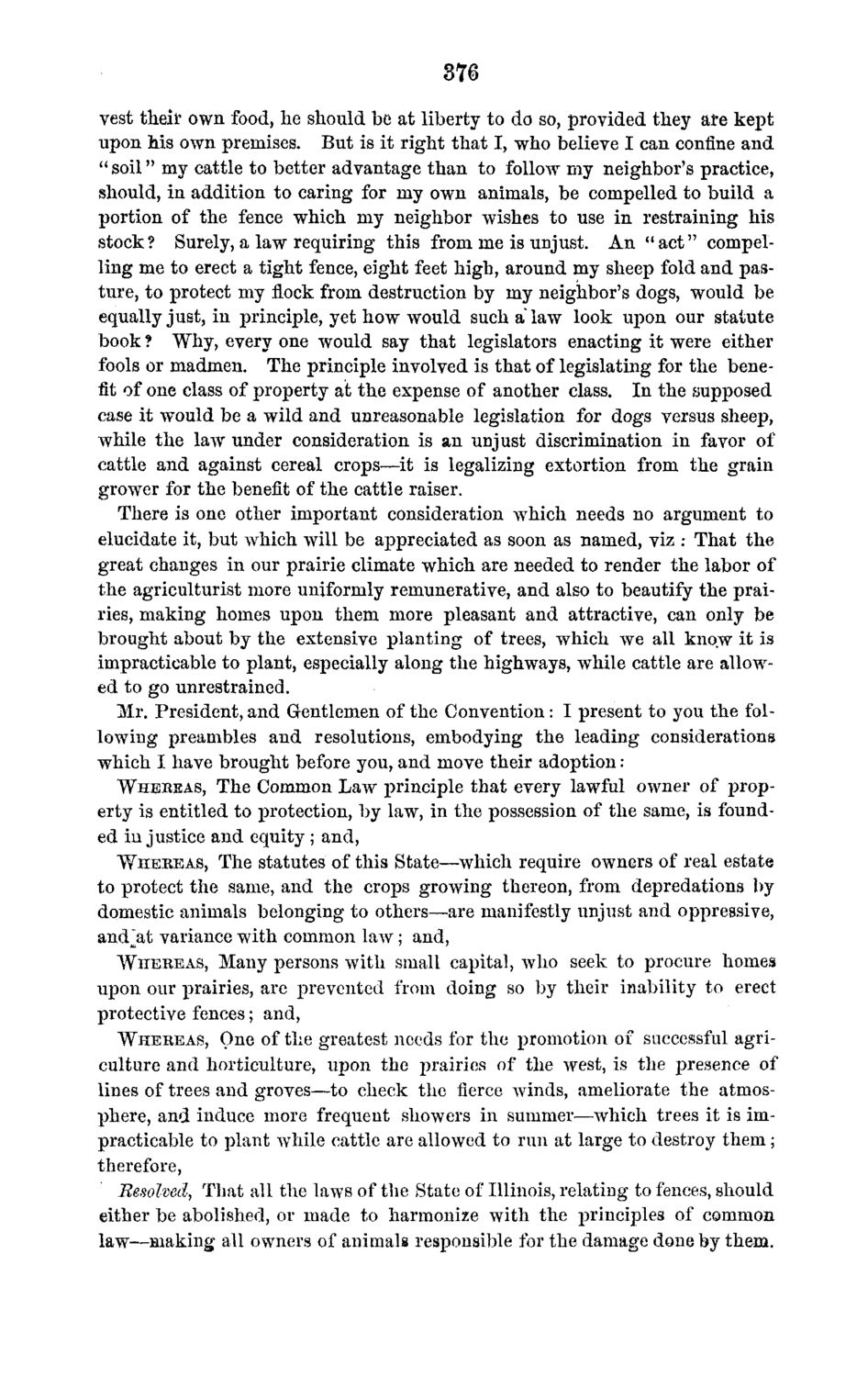| |
| |
Caption: Board of Trustees Minutes - 1870
This is a reduced-resolution page image for fast online browsing.

EXTRACTED TEXT FROM PAGE:
376 vest their own food, he should be at liberty to do so, provided they are kept upon his own premises. But is it right that I, who believe I can confine and "soil" my cattle to better advantage than to follow my neighbor's practice, should, in addition to caring for my own animals, be compelled to build a portion of the fence which my neighbor wishes to use in restraining his stock? Surely, a law requiring this from rne is unjust. An "act" compelling me to erect a tight fence, eight feet high, around my sheep fold and pasture, to protect my flock from destruction by my neighbor's dogs, would be equally just, in principle, yet how would such a law look upon our statute book ? Why, every one would say that legislators enacting it were either fools or madmen. The principle involved is that of legislating for the benefit of one class of property at the expense of another class. In the supposed case it would be a wild and unreasonable legislation for dogs versus sheep, while the law under consideration is an unjust discrimination in favor of cattle and against cereal crops—it is legalizing extortion from the grain grower for the benefit of the cattle raiser. There is one other important consideration which needs no argument to elucidate it, but which will be appreciated as soon as named, viz : That the great changes in our prairie climate which are needed to render the labor of the agriculturist more uniformly remunerative, and also to beautify the prairies, making homes upon them more pleasant and attractive, can only be brought about by the extensive planting of trees, which we all know it is impracticable to plant, especially along the highways, while cattle are allowed to go unrestrained. Mr. President, and Gentlemen of the Convention: I present to you the following preambles and resolutions, embodying the leading considerations which I have brought before you, and move their adoption: WHEREAS, The Common Law principle that every lawful owner of property is entitled to protection, by law, in the possession of the same, is founded in justice and equity ; and, WHEREAS, The statutes of this State—which require owners of real estate to protect the same, and the crops growing thereon, from depredations by domestic animals belonging to others—are manifestly unjust and oppressive, and^at variance with common law; and, WHEREAS, Many persons with small capital, who seek to procure homes upon our prairies, are prevented from doing so by their inability to erect protective fences; and, WHEREAS, One of the greatest needs for the promotion of successful agriculture and horticulture, upon the prairies of the west, is the presence of lines of trees and groves—to check the fierce winds, ameliorate the atmosphere, and induce more frequent showers in summer—which trees it is impracticable to plant while cattle are allowed to run at large to destroy them; therefore, Resolved, That all the laws of the State of Illinois, relating to fences, should either be abolished, or made to harmonize with the principles of common law—making all owners of animals responsible for the damage done by them.
| |